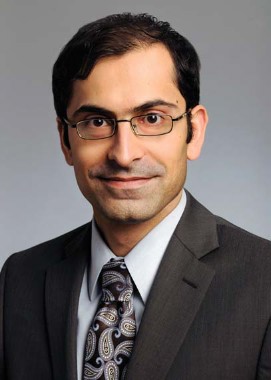The APPRAISE-2 trial showed that adding apixaban to standard antiplatelet therapy in patients with acute cardiac syndrome resulted in a 1.3% rate of major bleeding, compared with 0.5% with placebo, including five fatal bleeding events vs. none with placebo.
Unlike warfarin, these new anticoagulants have no defined antidotes – a lack that is of particular concern to surgeons. In a review of the new antithrombotic drugs presented at the 2011 VEITH symposium, Dr. Russell H. Samson said of dabigatran: "There is no antidote, so this drug should be used sparingly if surgery is anticipated. Thus, it is probably not a drug that should be used to prevent graft failure." Dr. Samson is a clinical associate professor of vascular surgery at Florida State University in Tallahassee.
A recent editorial in the New England Journal of Medicine sounded another note of caution. "Switching to a newer agent may not be necessary for the individual patient in whom INR has been well controlled with warfarin for years," Dr. Jessica Mega of Brigham and Women’s Hospital, Boston wrote (N. Engl. J. Med. 2011;365:1052-4). "In addition, although the newer anticoagulants have a more rapid onset and termination of anticoagulation than does warfarin, agents to reverse the effects of the drugs are still under development and are not routinely available."
The enthusiasm for the new anticoagulants may be premature for other reasons as well, such as the cost-effectiveness of these drugs, compared with the much cheaper warfarin, Dr. Mega said.
Elizabeth Mechcatie, Kerri Wachter, and Mitchel L. Zoler contributed to this report.
*3/6/2012 Correction: An earlier version of this story misclassified dabigatran. It is a direct thrombin inhibitor.


